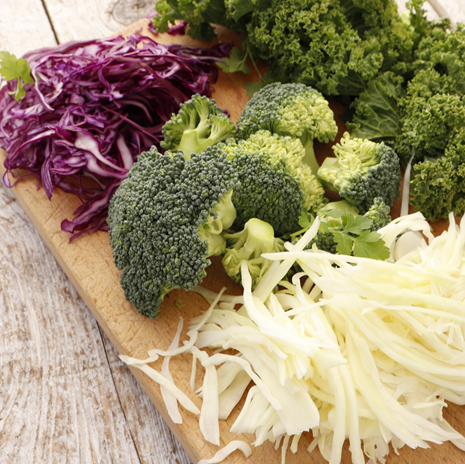
Low oxalate diet
Alternate names: Low-Oxalate Diet
Background
The low oxalate diet is a diet that limits oxalate-rich foods. Oxalate is found in most plant-based foods and is common in the diet. When too much oxalate builds up in the kidneys, it can cause conditions like kidney stones.
The low oxalate diet is used for kidney stones and vulvar pain, but there is no good scientific evidence to support its use for any condition.
The low oxalate diet is used for kidney stones and vulvar pain, but there is no good scientific evidence to support its use for any condition.
Safety Safety definitions
The low oxalate diet is LIKELY SAFE when followed appropriately for up to 3 months. No side effects have been reported.
Special Precautions & Warnings:
Pregnancy and breast-feeding: There isn't enough reliable information to know if the low oxalate diet is safe to use when pregnant or breast-feeding. But there is no reason to expect safety issues as long as nutritional needs are met.Effectiveness
NatMed Pro rates effectiveness based on scientific evidence according to the following scale: Effective, Likely Effective, Possibly Effective, Possibly Ineffective, Likely Ineffective, Ineffective, and Insufficient Evidence to Rate.
Insufficient evidence Effectiveness definitions
- Kidney stones. Some early research shows that eating a low oxalate diet is no better than following another diet called the Dietary Approaches to Stop Hypertension (DASH) diet. Also, some research in healthy adults shows that eating less oxalate does not always lead to less oxalate in the urine.
- Vulvar pain. Early research shows that women with vulvar pain do not have higher levels of oxalate in the urine. But some women with vulvar pain might have less pain after following a low oxalate diet.
- Other conditions.
Dosing & administration
The low oxalate diet requires a person to increase water intake and limit intake of foods that are high in oxalate. Oxalate is found in plant-based foods. But online references don't always agree about the oxalate content of most foods. So, it can be hard to figure out which plant-based foods are highest in oxalate.
Interactions with pharmaceuticals
It is not known if this diet interacts with any medicines.
Before using this diet, talk with your health professional if you take any medications.
Before using this diet, talk with your health professional if you take any medications.
Interactions with herbs & supplements
There are no known interactions with herbs and supplements.
Interactions with foods
There are no known interactions with foods.
Action
The low oxalate diet reduces the intake of foods that are high in oxalate. Oxalate is a normal part of the diet. But too much oxalate in the urine can cause it to build up and cause conditions like kidney stones. In theory, eating less oxalate should reduce the amount of oxalate in the urine. But some research suggests that the amount of oxalate in the diet doesn't always affect the amount of oxalate in the urine.
vital.ly has licensed monographs from TRC Healthcare.
This monograph was last reviewed on 31/05/2023 10:00:00 and last updated on 11/08/2020 03:31:31. Monographs are reviewed and/or updated multiple times per month and at least once per year.
Natural Medicines disclaims any responsibility related to medical consequences of using any medical product. Effort is made to ensure that the information contained in this monograph is accurate at the time it was published. Consumers and medical professionals who consult this monograph are cautioned that any medical or product related decision is the sole responsibility of the consumer and/or the health care professional. A legal License Agreement sets limitations on downloading, storing, or printing content from this Database. No reproduction of this monograph or any content from this Database is permitted without written permission from the publisher. It is unlawful to download, store, or distribute content from this site.




